Radley Metzger, the filmmaker behind groundbreaking movies such as Thérèse and Isabelle (1968), Camille 2000 (1969), Score (1974), and The Opening of Misty Beethoven (1976) passed away on Friday March 31st, 2017.
This week, The Rialto Report will be paying tribute to Radley by posting a new article about him each day.
In this piece, Ashley West remembers his friendship with Radley.
_______________________________________________________________________________________________
I knew something was up when I didn’t get an immediate reply to the last email I sent him.
I didn’t expect him to respond straight away every time, but this email was different.
This email contained a pun.
You see, for many years Radley and I had long-running email exchanges, swapping bad puns on a particular subject. We’d go backwards and forwards, sending each other ever-more ridiculous puns. Neither of us would back down until one of us was exhausted. We were competitive, and Radley usually won.
But recently he had missed our regular lunch date, and I was concerned.
So I emailed him to tell him that I felt like a German vegetarian: I feared the wurst.
Silence.
Not a great pun, but no reply at all?
Like I said, I knew something was up.
*
Radley and I would meet at midday most weeks at the Palace Diner on 57th Street in New York. It was a cheap and cheerful place that attracted a strangely eclectic crowd. Women in furs eating by themselves, college kids trying to keep a lid on their expenses, and blue collar city workers.
I would get there early. Not because I’m naturally prompt, but because I liked to look up the street and enjoy the expectation of Radley’s arrival. Once I’d spot him in the distance – his handsome shock of white hair was always the first thing I’d see – I liked watching him slowly amble along the New York avenue, smiling at people as he passed them.
He was a good-looking man, and was invariably dressed in the same no matter the weather – silk cravat showing above his dark blue sweater.
He’d greet me with a warm, firm handshake. We’d sit down at our regular booth, order matzo ball soup for two, and then the conversation would begin. It always started the same way.
“Who’s died?” he’d ask, with a mischievous glint in his eye.
I’d proceed to update him on anyone who had passed from the world of film he’d once inhabited. When I finished, he’d pause for effect.
“And who’s not feeling too good?”
*
I first contacted Radley many years ago. I’d just arrived in New York, and rather than walk around Central Park or visit the Empire State Building, I picked up a phone directory and checked to see if he was listed.
He was. So I called him. And he picked up the phone.
I told him how I’d seen his film Barbara Broadcast at an Italian cinema in the late 1970s. I explained how it had affected me, changed me even. I asked him about the editing in Camille 2000, and the location used for The Lickerish Quartet, and the actress in Dark Odyssey. I talked too much, but he listened patiently. I asked him if he’d ever considered writing an autobiography.
He seemed vaguely suspicious but gratified by the attention, and he suggested we meet.
“Let’s get together at a sophisticated restaurant” he said. “How about the Palace Diner?”
*
Radley was proud of his legacy – and rightly so. After starting his career editing trailers for Janus Films, a major distributor of foreign art films, he emerged in the mid 1960s as an auteur making artistic, erotic films such as Carmen, Baby (1967), Thérèse and Isabelle (1968), Camille 2000 (1969) and The Lickerish Quartet (1970). He shot many of the films in Europe, adapting them from novels or other literary sources, including ‘Carmen’, ‘La Dame aux Camélias’ and ‘Six Characters in Search of an Author’.
Radley was talented, but he also surrounded himself with gifted collaborators who he was quick to acknowledge. Together they created a series of films that were distinguished by their lavish design, witty screenplays, and striking cinematography. They were daring too: as one critic wrote, they capture – as much as they contributed to – the emerging sexual revolution.
Radley was a smart businessman, and the company he founded with longtime partner Ava Leighton, Audubon Films, became a pioneer in the production and distribution of his, and other’s, erotic films.
But the film market was changing. In 1974 he made Score, an adaptation of a stage play, which he shot in Yugoslavia. The film contained mildly explicit sequences but wasn’t successful – at least not as successful as the new hardcore films that had started to play in competing theaters. It marked a sea change in Radley’s career: “Suddenly nobody cared about what we’d been doing. The rules had changed. We resisted X-rated movies. We felt we were way above that sort of thing. Finally we succumbed and decided to do an X-rated feature.”
Overnight Radley became ‘Henry Paris’, and in six days he shot a pornographic movie called The Private Afternoons of Pamela Mann. In some respects nothing had changed: all the elements, such as his fascination with the ennui of the sophisticated, were still there. But in many other respects, everything had changed for ever.
Radley went on to make some of the best adult films of all time, including The Opening of Misty Beethoven, Naked Came the Stranger and Barbara Broadcast. But his relationship with his explicit adult films was always complicated. He was grateful for their success but bemused and sometimes resentful of how they frequently received more attention than his previous work.
He never saw any of his films after he finished post-production on them. When they were exhibited in his presence, he would wait until the theater lights dimmed before slipping out and going for a walk. He would return and take his seat for the final credits. Most of the time no one would notice. When I recorded commentaries with him he would insist on having his back to the films, and asked for the volume to be turned down low.
I asked him why he never wanted to watch them. He said he feared that they wouldn’t match his happy memories.
*
Radley loved film. All film. He went to the cinema several times a week, seeing a mixture of mainstream, art-house, and vintage films. He always wanted to know what I thought of a movie, and expressed dismay (actually, more like personal affront) if I hadn’t seen a particular work – especially if he considered it to be a classic.
His own opinions were crisp, authoritative and funny.
Birdman? “It could have been one of the best films of all time if only it had ended twenty minutes earlier.”
Son of Saul? “Brutal. And not nearly as much fun as Singin’ in the Rain.”
The Passionate Thief? “One of the most criminally underrated films of the 1960s.”
He had an encyclopedic knowledge of films and was full of anecdotes about them.
He asked me if I’d set up a website for him where he could post his own film reviews and musings. I thought it was a great idea. We mapped it out, but then he became concerned there’d be no interest in it. I disagreed and told him that many people would love to read his takes. In the end he got cold feet and the website never got off the ground.
*
Radley would arrive for lunch at the Palace Diner each week with a hand-written list in his top pocket. Despite his advancing years, he still had an insatiable desire to remain active and relevant.
Sometimes he wanted me to do some research such as find someone for him. The first person he wanted me to locate was Jeanne Jerrems, the star of his first film Dark Odyssey (1961). He shrugged, and said they’d been ‘sort of’ friends. I found Jeanne living in France where she told me of the torrid affair she enjoyed with Radley while making the film. Clearly being ‘sort of’ friends with Radley could have benefits.
Most of the time though, his list would relate to the work he wanted to do with his films. He was keen to return to directing, and we had a number of projects in development. We recorded commentaries for all his remaining movies. He shared photographs and documents with me that he’d found in his vault.
One time we talked for hours about his plans to finally release what he referred to as ‘The Lost Films of Henry Paris’. He told me how he’d returned to X-rated films incognito years after making the five hardcore Henry Paris films. The ‘missing’ films were The Tale of Tiffany Lust (1979) and Aphrodesia’s Diary (1984). Neither were credited to him as he feared at the time they would compromise his efforts to establish a mainstream career. He slowly opened up about them, saying that French backers had financed them and he’d made them for the money. Now, over thirty years later, it seemed he may be finally willing to accept authorship.
Sometimes Radley’s failing hearing meant that he would discuss his films rather loudly, which could be unnerving when talking about the mechanics of how he directed a particular sex scene.
On one occasion, a fellow diner overheard our conversation, and sent over a note to us saying that he was honored to be in a restaurant at the same time as “such a legendary filmmaker” whom he’d long idolized. He insisted on paying for our food.
I still have the scribbled message. It goes on:
“For years I have followed your career and appreciated the artistry that you brought to the field of X-rated films. You took risks and you were brave.
I know I will look back and remember today with great happiness. I will be able to proudly say, ‘I remember the day I ate in the same diner as Gerard Damiano”.
Radley stood up, went over to the fan, and thanked him for liking his films.
We laughed all the way down Park Avenue.
*
Our meetings weren’t restricted to the Palace Diner. Radley was a member of the Friars Club, the New York private society composed of comedians and other celebrities, and famed for inventing roasts. He would host dinners there surrounded by portraits of entertainers and personalities who’d been roasted and toasted.
Radley often asked about Jamie Gillis, the lead actor in his film The Opening of Misty Beethoven (1976). By the mid 2000s, Jamie was living in New York again but they hadn’t seen each other since the early 1980s. I knew that Jamie wanted to see Radley again, so I brokered a meeting that took place at a Leonard Cohen concert in February 2009.
Jamie had just found out he had terminal cancer and was in the mood to reconnect with someone he’d greatly admired for so long.
It seemed fitting that the two aging pioneers came together at a show in which Cohen sang, “My friends are gone and my hair is grey, I ache in the places where I used to play.” They came together like a long-separated father and son, moved to be in each other’s company.
In 2015 I arranged for Radley to meet Catherine Robbe Grillet, who’d written the novel L’Image on which he had based his film The Image (1975). It was the first time they had met, and the encounter was charming. Catherine led Radley to a corner of the room where he spoke to her quietly in impeccable French. I heard them occasionally giggle like school children.
Often we met at places that had a connection to Radley’s films. Last year he took me for birthday tea at the Plaza Hotel, where parts of The Private Afternoons of Pamela Mann had been shot. We’d dine regularly at the Four Seasons restaurant where he had held the premiere and after-party for The Opening of Misty Beethoven. And sometimes we’d meet in the lobby of the Milford Plaza, where he had filmed the restaurant scene for Barbara Broadcast.
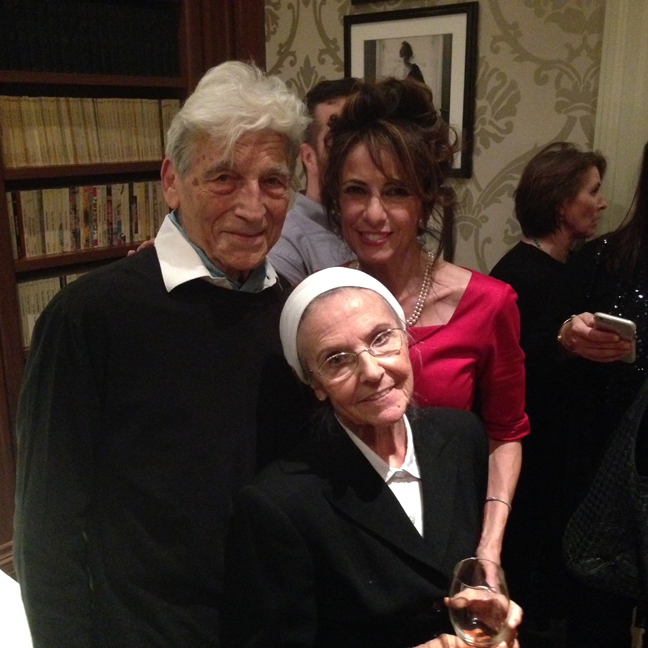 Radley with Catherine Robbe-Grillet and author Toni Bentley
Radley with Catherine Robbe-Grillet and author Toni Bentley
*
When I first met Radley, he expressed mild surprise that other directors of his generation had received accolades that had seemingly passed him by. He wondered if it was because of the Henry Paris period.
Fortunately things started to change in the last few years.
He was invited to lecture at the Museum of Modern Art, The George Eastman House in Rochester, the Telluride Film Festival, and the Olympia Film Festival. The Museum of the Moving Image in New York presented a day-long retrospective of his features.
In 2010, Radley was presented with the prestigious German Independence Honorary Award at the 17th Annual Oldenburg International Film Festival where a retrospective of his films was shown. In 2013 he was invited back to the festival to serve as a judge.
And in 2014, Radley received perhaps the most gratifying recognition when the Lincoln Center in his hometown of New York presented ‘This Is Softcore: The Art Cinema Erotica of Radley Metzger’, a week-long retrospective of his films. He was there in person to proudly present the movies.
He had finally received the recognition he richly deserved.
*
Radley passed away just before 9pm on Friday evening, March 31st.
I received a call shortly afterwards informing me.
The purpose of oral history is to let the subjects speak in their own words. So at The Rialto Report, we try and restrain from expressing our own opinions.
But let’s not mince words.
Radley was the reason for the Rialto Report. It wouldn’t exist without him. He was the alpha and omega of the industry for us.
He was our friend.
And we’re missing him already.
*
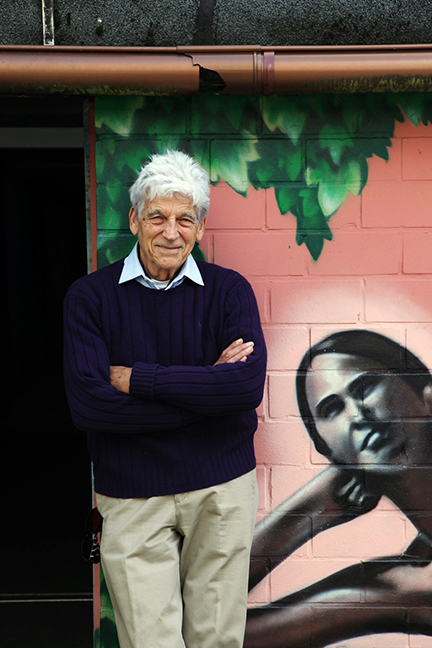
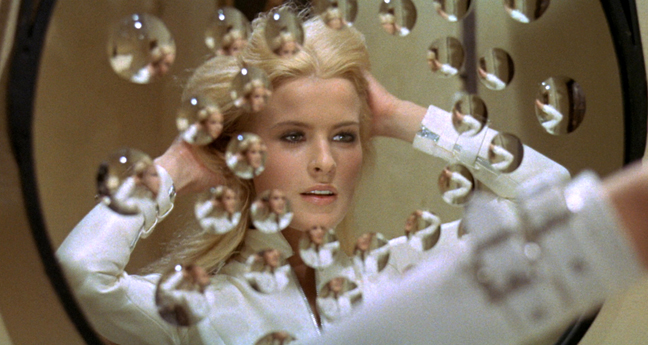
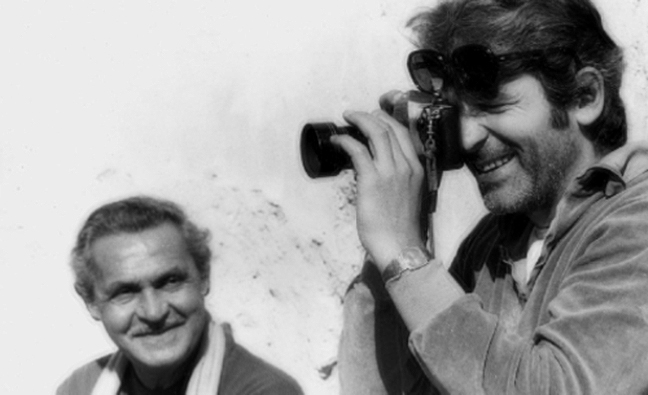
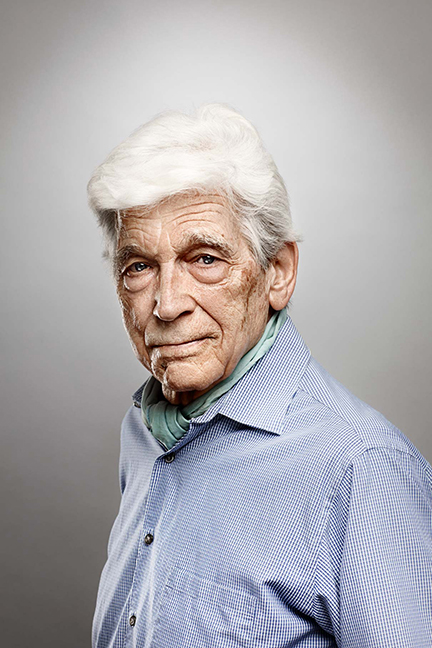

I can finally say it The Greatest Rialto Report !!!
I get this post. I understand wanting to locate people we admire, and pay respects. Surprise! A friendship ensures… more often than not. As we all get older – post 50 – we don’t get things – we get them taken away. Time is a bitch. The secret is to knock out all the things you want to do, people you want to see, places you want to go. Like a yearly bucket list. Find that person – interview them – let them tell the tale.
Ashley – you are doing all these things. And we all thank you (and Radley) for it.
This post resonates with me 100% and i feel your loss, because I miss him too.
Amazing artist, towering figure. The industry would be 100% poorer without him.
Lickerish Quartet – great movie. Sad in a way that he couldn’t keep making movies like that, but – time moved fast in the 20th Century, and nowhere did it move faster than in the cinema.
Camille 2000 used to play on a cable station called Escapade, which ultimately morphed into the very disappointing Playboy station. I believe they played Lickerish Quartet as well. And yes, Jamie Gillis really admired him, he brought Metzger up many times during my interview with him.
Thank you Ashley for the wonderful post and confirming some things for me (I thought you were the moderator on the commentaries, but wasnt sure). I have yet to see any of his softcore films, but I will have to check them out too, as his hardcore stuff are some of my favorite movies of all time. I’m grateful for Distribpix and to Ashley for restoring his films to the integrity they deserve and plan on spending this Sunday listening to all four of the commentaries. Thank you RR and RIP Radley!
Thank you so much for this Ashley and The Rialto Report… A double feature of “The Opening of Misty Beethoven” and “Barbara Broadcast” at the L.A. revival house The New Beverly Cinema – seen well before my 18th birthday – was as mind-altering as it was loins-altering for me in their casual kink as it pertained to the indulgences of passion and capricious sexuality. Mr. Metzger was an artisan in presenting a society of sex as it was happening right beneath our noses yet clandestine as a password-required speakeasy. Metzger made the most taboo acts and rituals extraordinarily ordinary and palatable, breaking down hang ups and so-called moral mores with wit, style and frankness. The scenarios, the situations, the stars…and those scores. I had the pleasure of meeting Mr. Metzger at a screening less than a mile from the New Beverly at a place called Silent Movie where they were screening some of his earlier softcore work that I’d never seen. He was one of the coolest older gentlemen to ever grant a fan 5 minutes of unadulterated praise and mush. I will remember him fondly and with fathoms deep respect.
Of interest I was also at that Leonard Cohen show in 2009. If my memory is correct it was at the Beacon, it might have been a few nights, all were sold out, because it was Cohen’s big return to touring and it was necessitated by the fact that Cohen’s manager (a woman) had ripped him off big time. It was a great show.
I am so jealous, Ashley! Jamie, Radley, and you at a Leonard Cohen concert! Hmmphf. Love you and your sharing of these memories.
What a lovely remembrance of a true artist.
Sad to hear of Radley’s passing but this is a beautiful tribute. I own the five main hardcore titles, some on VHS, their original (and mangled) VCA releases, and through the Distribpix restorations and still watch them frequently, especially “Naked Came The Stranger.” Darby Lloyd Rains is perfection in that and I always get this huge grin on my face when she pops up from out of frame and announces “I’ll cheat.”
The side effect of seeing the Henry Paris movies was that it sent me back to track down the softcore movies. For years after seeing a really good print of “Camille 2000,” I thought it was one of the most striking looking movies of any genre I’d seen in a long time. The mention of Jeanne Jerrems struck a chord too, as I thought she was the best thing about “Dark Odyssey,” which I tracked down on Redbox’s short-lived streaming service. In fact, I reviewed it for an equally short-lived blog (fieldofstreams.wordpress.com); the review itself was almost a tribute to Metzger’s whole career.
It makes perfect sense that Metzger would be the inspiration for Rialto Report. It mixes a certain elegance regarding a tricky subject with a necessary, almost unavoidable grit. Just like his movies.
I’m grateful for Radley and grateful for Rialto. He shall be missed and I hope you and April keep doing this for years to come.
Oh Ashley, I’m so sorry and so sad. Yes, the Palace Diner. Yes, the horrible puns. Leonard Cohen, always. His gift was so special and so generous. XOXOXO
Thank you so much for posting this, Ashley. As an occasional oral historian myself I find that folks I look up to are often bemused by the attention we give them, but once they start talking there’s a sense of tangible joy that comes through and makes it all worth it.
Ashley, I knew that you were friends with Mr. Metzger, and I can only imagine how hard this hit you. It’s great that you got to spend so much time with him (in the Palace Restaurant, which I’ve only been to a couple of times but walk past constantly — I lived so close to Mr. Metzger, his neighborhood was the far ritzier southern end of mine), and it seems like you both did so much for each other.
Masterful writing and really touching memories. I’m already reading all sorts of blog posts by fans that have no connection to Radley apart from an appreciation of his work so I THANK you for keeping it REAL with some facts and real experience of the man.
I contacted him once for a PhD thesis and he was kind and generous with his help. A genuinely good man with a supremely good book of work.
RIP Radley, and thank you Rialto people.
I read and re-read this with a lump in my throat. Radley / Henry Paris films had a huge effect on me growing up (!) and they have never passed their sell by date. I watch them and enjoy them now as I did then – perhaps more so. A lovely tribute to a gentleman.
The revelation about the 2 lost Henry Paris films is remarkable!!!!! What are the plans for these now??
Radley is / was the best of the best in this sphere.
As much as I love the Rialto Report (and I really do!), we should all recognize (as I think the Rialto guys do) that 99.9% of adult films from any era are terrible, terrible films. None would get into any intelligent person’s Top 10,000 films of all time. (Gerry Damiano, please…. Chuck Vincent, are you serious…? Carlos Tobalina…? I’m tired of people writing about how great he was just because they’ve been sent a DVD to review. Shaun Costello….? I need to throw up in my mouth at the idea that he’s even considered a filmmaker. And so on, ad nauseum.)
And yet….. Radley’s films are ALL interesting. And some are truly exceptional. He was the one filmmaker who should be preserved from this genre and era.
Ashley – your friendship with him was good for all of us, and I hope YOU will one day be inspired to write to biography of him. He deserves it, and many of us would love to read it.
Ashley, that is a wonderful, moving tribute to a great film maker and your friendship with him. Thank you for sharing your memories.
I only had the privilege of Radley’s company for a few days at Offscreen Festival, Brussels in 2014 but your words make me smile – even though it’s tinged with sadness – as I recall his wickedly puckish sense of humour and zest for life. He held the Belgian audiences entranced with tales of how he made his many classics.
Last night it was a near impossible decision as to which of his films to watch in his memory. Eventually I decided on Score which, for me, perfectly blends the wit and eroticism and the humanity of his work into a liberating, uplifting fable.
All credit to Jerry Douglas for his remarkable script, of course, and to the cast for a quintet of excellent performances. But ultimately it is Radley who brought all the elements together to create a film which I am always happy to revisit; always finding new things; always glad to be in the company of these five rich characters.
And then I watched the ‘making of’ footage, with Radley – handsome as a classical god on that magical Croatian coast – and I’m not ashamed to admit that a tear or two rolled down my face.
Farewell, maestro, and thank you for giving us so many masterpieces.
I guess I did’nt realize how much Radley Metzger meant to me until I noticed the tears I was litterally shedding as I was reading Ashley’s moving words. I’ve long admired the directors, actors, and actresses whose work was so instrumental in changing social attitudes towards sexuality and to sex in film and other media. (Including Damiano and Vincent. unfairly msligned in an earlier comment) But Metzger? Metzger was a giant – and I find myself surprisingly saddened and shocked by his passing. To RR’s creators – I can’t thank you enough for documenting such an important and overlooked part of our social history. I remain, and always will be, A Canadian Fan……now I’m going to have to find both Aphrodisia’s Diary and Tiffany Lust. What an amazing revelation that is!
I’m continually surprised at how small a world it is. Just looked him up and he and my uncle both directed features with the same lead actress. Now I have to watch his.
A beautiful remembrance.
RIP Mr Metzger.
Beautiful, heartfelt piece.